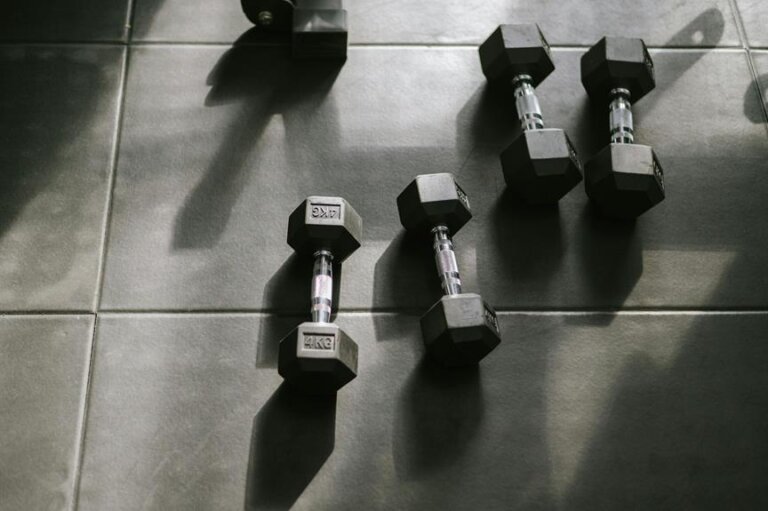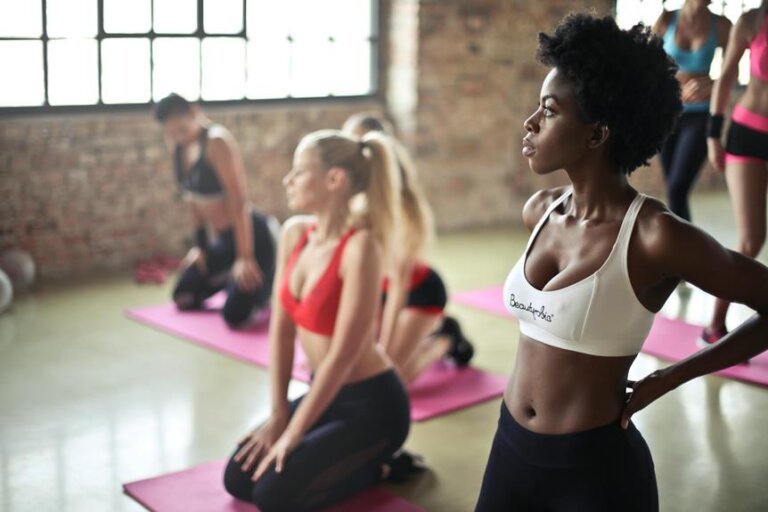The Ultimate Guide to Nutrition for the Modern Fitness Woman
Did you know, according to a recent study, over 60% of fitness-oriented women are unaware of their daily nutritional requirements?
As a modern fitness woman, it's crucial to understand the role of nutrition in achieving your fitness goals. You've probably heard of the importance of macronutrients, but what about micronutrients? And how does hydration really affect your exercise performance?
With so much information and countless diet myths out there, it's easy to get lost. Stay tuned as we unravel the ultimate guide to nutrition, designed to help you make informed decisions on your fitness journey.
Understanding Basic Nutrition Concepts
To fully grasp the role of nutrition in fitness, you need to first understand some basic nutritional concepts. You see, what you consume directly influences your fitness goals, whether you're aiming for weight loss, muscle gain, or overall health improvement.
Now, let's start with the concept of calories. Simply put, a calorie is a unit of energy. Your body needs this energy for daily functions like breathing, moving, and even thinking. To maintain your current weight, you need to balance the calories you consume with the calories you burn. If you consume more than you burn, you'll gain weight. Conversely, if you burn more than you consume, you'll lose weight.
Then there's the concept of nutrients – the substances in food that your body needs to function correctly. They're divided into two categories: macronutrients and micronutrients. Micronutrients, which we'll delve into later, include vitamins and minerals that your body needs in small amounts but can't produce on its own. Understanding these concepts is a crucial first step in mastering the role of nutrition in fitness.
Importance of Macronutrients
Now, let's move on to the significance of macronutrients in your fitness journey.
You'll need to grasp the roles of these nutrients and how to balance them effectively.
This knowledge is crucial to optimizing your workouts and achieving your fitness goals.
Understanding Macronutrients Role
In the realm of nutrition, understanding the role of macronutrients is key to optimizing your fitness regimen. Macronutrients—namely proteins, fats, and carbohydrates—are the cornerstones of your diet. They're the high-energy foods your body needs to function and maintain its strength, especially during workouts.
Proteins are the building blocks for your muscles, aiding in their repair and growth. Fats, despite their bad rap, are essential for hormone production and serve as a long-term energy source. Carbohydrates are your body's go-to fuel, providing immediate energy for your workouts. Each has a unique role, but they all work together to keep you healthy and fit.
It's crucial to get a grasp on their individual roles to fuel your body effectively.
Balancing Macronutrients Effectively
So, how can you effectively balance macronutrients to support your fitness goals?
It's simpler than you'd think.
First, understand the role of each macronutrient. Proteins repair and build muscle, carbohydrates provide energy, and fats help with hormone regulation.
Split your daily caloric intake into 40% carbs, 30% protein, and 30% fats as a rule of thumb. However, remember that everyone's body responds differently to diets. It might take some experimentation to find what works best for you.
Keep track of how your body feels and reacts to different macronutrient ratios. Adjust your intake based on your energy levels, recovery times, and fitness progression.
Role of Micronutrients
Don't underestimate the powerful impact micronutrients can have on your fitness journey. They're the vitamins, minerals, and other essential substances your body needs in small amounts, but they pack a big punch. Why? Because they're crucial for your body's overall functionality – they aid in energy production, immune function, blood clotting, and bone health, to name just a few.
You're probably thinking, 'This sounds great, but how do I incorporate them into my diet?' It's simpler than you might imagine. Consuming a variety of fruits, vegetables, lean proteins, and whole grains will provide you with a wealth of micronutrients.
Iron, for instance, is a key player in delivering oxygen to your muscles, and you'll find it in foods like spinach and lean red meat. Vitamin D, which you can gather from fatty fish or a few minutes in the sun, helps maintain bone health. And don't forget about antioxidant-rich foods like berries and dark chocolate, they'll help reduce inflammation and speed up your recovery after workouts.
Hydration and Exercise Performance
While maintaining a rich micronutrient diet is key, it's equally important to keep your body well-hydrated, especially when it comes to enhancing your exercise performance. Hydration has a direct impact on both your endurance and strength. When you're dehydrated, your body can't properly cool itself through sweat, which can lead to overheating and reduced performance.
Water is the most essential nutrient your body needs. It's involved in nearly every bodily function, from digestion to nutrient absorption and circulation. You lose water through sweat, breathing, and even digestion, so it's crucial to replace the fluids you lose during your workouts.
Try to drink at least half your body weight in ounces each day. For example, if you weigh 150 pounds, aim to consume 75 ounces of water per day. During workouts, sip on water every 15 to 20 minutes to maintain hydration.
Sometimes, water isn't enough, especially during long, intense workouts. This is where sports drinks with electrolytes can be beneficial. They can help replenish sodium and potassium lost through sweat, maintaining the balance of fluids in your body. But be careful, some sports drinks are high in sugar and can increase your calorie intake.
Meal Planning Strategies
As you strive to keep fit, having a solid meal planning strategy is crucial.
It's not just about what you eat, but also how you balance your macronutrient intake, streamline your meal prep, and maintain optimal hydration.
Let's explore these key points and understand how they can transform your nutrition and fitness journey.
Balancing Macronutrient Intake
In your quest for optimal fitness, it's crucial to balance your macronutrient intake through effective meal planning strategies. Macronutrients, comprising proteins, carbohydrates, and fats, fulfill different functions in your body and should be consumed in the right proportions.
A typical balance might be 40% carbs, 30% proteins, and 30% fats, but it's best to tailor this to your unique fitness goals and body's needs. For instance, if you're aiming to build muscle, you might need a higher protein intake. However, don't neglect carbs and fats as they're vital for providing energy and supporting bodily functions.
Streamlining Meal Prep
Mastering the art of meal prep can significantly streamline your nutrition regimen, ensuring you're always ready with balanced, nutrient-dense meals that align with your fitness goals.
Start by planning your meals for the week ahead. This not only saves time but also avoids last-minute unhealthy choices. Use a slow cooker or instant pot to make large batches of protein like chicken or beans. Portion them out for the week and you've got the base for several meals.
Use a variety of spices to keep flavors interesting. Pre-chop veggies for easy salad and stir-fry assembly. Keep healthy snacks like nuts and fruit on hand for when hunger strikes. Remember, variety is key to avoid dietary boredom.
Preparation is the secret weapon in your fitness journey.
Optimal Hydration Practices
While meal prep is your secret weapon for solid nutrition, staying properly hydrated is just as critical to your fitness success. Hydration isn't simply about gulping down water. It's about drinking the right amount at the right times.
Aim for at least 2 liters a day, but remember, if you're working out or it's hot, you'll need more to replace what you've lost in sweat. Also, don't wait until you're thirsty to drink water, because that's a sign you're already dehydrated.
Infuse your water with fruits or add a splash of juice to make it more appealing. Lastly, incorporate foods with high water content into your meals. Hydrating isn't hard, it's about making smart, consistent choices.
Dealing With Diet Myths
You've probably heard a ton of diet myths that can sabotage your fitness and nutrition goals. From the notion that carbs are your enemy to the idea that you can out-exercise a bad diet, these myths can cause confusion and hamper progress. Let's debunk some of them.
First, carbs aren't the enemy. They're essential for energy and brain function. It's about choosing complex carbs like whole grains, fruits, and vegetables over processed ones.
Second, starving yourself doesn't equate to weight loss. In fact, it can lead to muscle loss and slowed metabolism. It's crucial to eat balanced meals that fuel your body.
Third, you can't out-exercise a bad diet. Nutrition and exercise go hand-in-hand for optimal fitness. You can't compensate for poor nutrition with extra gym sessions.
Lastly, there's no one-size-fits-all diet. Each body is unique, and what works for one person may not work for another. It's about finding what suits your body and lifestyle.
Frequently Asked Questions
What Are the Best Exercises Specifically for Women to Complement Their Nutrition Plan?
You're asking about exercises specifically for women to pair with their nutrition plan. Cardio, strength training, and flexibility exercises like yoga are great. They'll complement your diet and help you meet your fitness goals.
How Can Hormone Fluctuations During Menstrual Cycles Affect a Woman's Nutrition Needs and Fitness Results?
Hormone fluctuations during your menstrual cycle can play havoc with your nutrition needs and fitness results. You might crave carbs and feel sluggish, affecting both your diet and workout performance. Don't worry, it's normal!
Can Specific Nutrition Strategies Help With Issues Like Cellulite or Stretch Marks?
Yes, specific nutrition strategies can definitely help with issues like cellulite or stretch marks. Consuming plenty of water, vitamins, and minerals can improve skin elasticity and potentially reduce the appearance of these skin conditions.
What Are the Effects of Menopause on a Woman's Nutritional Needs and Fitness Levels?
As you hit menopause, your body's nutritional needs and fitness levels shift. You'll need more calcium and Vitamin D, and maintaining muscle mass becomes crucial. It's a whole new ball game, but you've got this!
How Can Nutrition Help Improve the Recovery Time After Childbirth?
Proper nutrition can speed up your recovery time after childbirth. Eating protein-rich foods aids in tissue repair, while staying hydrated and consuming fiber can combat postpartum constipation. It's essential for your overall wellbeing.
Conclusion
In the grand dance of wellness, you've learned to twirl with macronutrients, waltz with micronutrients, and hydrate to the rhythm of exercise.
You've debunked diet myths and choreographed your meal plans.
Now, it's time to take the stage and let your body thrive.
Remember, it's not about perfection, sweetheart, it's about balance.
So, lace up those trainers, fill your plate with rainbow hues and let nutrition be your most supportive partner in your fitness journey.





